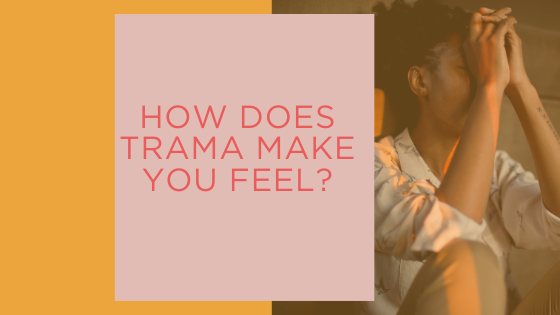When you have experienced trauma, whether a one off incident or ongoing experiences, whether it was 20+ years ago or just in the last few months, you might struggle psychologically. You might struggle to understand why life is difficult for you and why you feel afraid, overwhelmed, anxious or sad much of the time. You know that life is going relatively ok (on paper at least) for you so you keep telling yourself that you should be happy yet life is still tough and you’re not sure why. Read on to find out more about trauma symptoms.
Hypervigilance
Many people who have experienced trauma remain on edge much of the time. Loud voices make your heart race faster. Seeing someone looking angry can make you freeze for a moment and feel overwhelmed with fear. Hearing someone talk about your earlier experiences can leave you overwhelmed. Noticing your partner is grumpy and this leaving you on edge, It’s as if your brain has an alarm that makes it extra sensitive to these things.
These can all be unconscious triggers that on one level that you’re probably not even aware of. They pull you back to a time in your life when things were more difficult for you.
Experiencing trauma can lead to a fear that it will happen again and our brain will always try and protect us from danger. We are driven towards survival. Therefore to keep ourselves safe, our brain will often be on high alert and scan our environment for anything that is similar or often loosely connected to our trauma.
Hyperarousal
When your system is on high alert, you are often anxious and on edge much of the time. You might notice your heart racing fast, you sweat, your mouth becomes dry and you are desperate for a drink of water, your thoughts start to race and you think awful things about yourself or others around you. You might feel completely overwhelmed and that you can’t cope. We can experience this when we think we are unsafe. Again this can be happening subconsciously and we are often not even aware as to what has triggered this response.
Your body is working extra hard to prepare itself for survival. In the old days of cave men, this response would work well to keep our species going. Today it often gets activated at unhelpful points and can leave you feeling completely exhausted.
Nightmares
It is well known that sleep has a reparative element to it. I see sleep as being the way that the body works through the stress of the day and files it all away, in it’s appropriate place. If it doesn’t need to be filed away the brain finds a way to let it all go. However sleep is also a time when our subconscious is more active and this can lead to bad dreams and nightmares.
You might dream about specific incidents, you might have weird dreams that make sleep difficult. You might find that you are woken up after these dreams. Often the dreams might not make much sense however when you reflect on the theme, there may have been an emotion, fear or sadness for example that is actually connected back to things that have happened to you previously.
You might find that you can’t stop thinking about certain things that have happened in your past. Whether it’s a one off experience ie. an assault or ongoing ie. a difficult relationship with family members.
Negative beliefs/low mood.
Many people who have been traumatised hold on to negative thoughts and beliefs. You might think ‘I’m a bad person” “I have done nothing with my life” “I am unsafe” “Bad things always happen to me” “I should be able to cope better than this, everyone else can cope”. These thoughts might whizz through our mind so quickly that we can hardly catch hold of them. Often we are not even be aware that they are there. The mind tends to work a lot faster than the speed at which we can talk. It’s just awful that for many these inner critical words are there almost constantly.
These thoughts often lead to a low mood or even symptoms of depression. You might struggle to find pleasure, to enjoy life, you may have a low motivation and find it hard to muster up any enthusiasm or energy to do anything, even getting out of bed in the morning could feel like a huge effort. This may then lead to you stopping doing things which doesn’t help you feel any better and so the cycle just keeps going round and round. Anyway more on this for another blog post.
If any of these trauma symptoms are dominant for you, you might benefit from some work with a Psychologist, have a look at my website to find out more about the therapy I offer. Click here for further details


Recent Comments